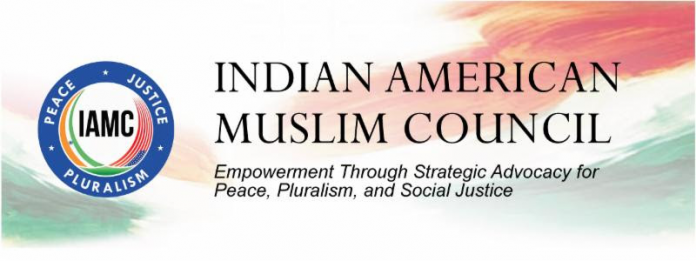TCN News
Indian American Muslim Council (IAMC) co-sponsored a virtual Congressional briefing on Wednesday in response to USCIRF declaring India the hotspot of escalating violence against minorities.
The conference was themed around “The Next Steps” after an in-depth analysis of USCIRF recommendations to curb escalating religious violence in India after the US Secretary agency had listed India as a “Country of Particular Concern (CPC)” under the International Religious Freedom Act in its 2020 Annual Report. Held with the support of partner organizations – Hindus for Human Rights (HfHR) and International Christian Concern (ICC), its attendees included several USCIRF Commissioners, representatives from Amnesty International, IAMC, HfHR, and ICC besides representatives of prominent human rights organizations, activists, and other professionals.
The meeting began with Nadine Maenza expressing her specific alarm at the scapegoating of Muslims through the “#CoronaJihad” social media campaign. Maenza is the Vice-Chair of USCIRF who talked at length about the “social and economic boycott of Muslims in some parts of the country as well as discrimination against Muslims in the context of medical treatment during the global pandemic.” She believed India is currently underway for an “existential crisis in its democratic polity.”
Dr Harrison Atkins, South Asia policy analyst with the USCIRF accused BJP leaders of using “symbols of Hinduism and policies aimed at their protection as weapons against minority communities in their quest to further marginalize religious minorities and shape a Hindu nation.” He added that the ruling BJP party has further combined it with “its inflammatory rhetoric” to strengthen the ideas that Muslims and Christians were “outsiders with no legitimate place in Indian history or society and, by their mere presence, a potential threat from within surfaced the project of making India a Hindu nation.”
The briefing noted that a subsequent erosion of religious freedom began from the abrogation of Article 370 and the continuing “horrific violations of human rights in Kashmir.” It further pushed the way forward for BJP leaders with “the brutal clampdown on peaceful civil dissent against the Citizenship Amendment Act (CAA) and the National Register of Citizens (NRC) and the recent Delhi pogrom, among several other egregious instances of religious persecution.”
Francisco Bencosme, Asia Pacific Advocacy Manager of Amnesty International particularly mentioned Safoora Zargar, who is a student activist jailed for speaking against the discriminatory CAA, despite her pregnancy. Contributing to the panel, Aman Wadud from Gauhati High court spoke on the attack on Muslim activists under false charges. He elaborated the rampant misuse of the anti-terror law, the Unlawful Activities Prevention Act (UAPA), under which the Indian government is currently designating any individual as a “terrorist” on mere suspicion. He stated that “the law was being used against students and journalists” and it “speaks volumes about the administration’s overt alignment with fascism.”
Jeff King, President of ICC added that oppression of Christians and recent attacks on churches show that “persecution, vigilantism, Hindutva and Hindu radicalism characterizes India now.” Raju Rajgopal, co-founder of HfHR made a significant point by urging everyone “to distinguish between Hinduism and Hindutva,”, explaining that “the true concept of Hindu Rashtra is actually one of inclusiveness and tolerance, while the Hindutva Rashtra is a product of RSS and its affiliates that are clearly striving for violence, authoritarianism and intolerance.”
The instances of conversion were also taken up at the Council where violent prohibitions to conversions of Indian Hindus to Christianity or Islam was meted out on newly converts, hence mentioning the conversion laws where converts could face 3 to 7 years of imprisonment for their voluntary religious conversion. The meeting continued for 90 minutes including a Q&A session open to all where religious freedom around the world was discussed. Legal counsellors encouraged grassroots organization in the US to reach out to their Indian counterparts for “engaging in and tolerating systematic, ongoing and egregious religious freedom violations.”
The endnote recorded IAMC’s commitment “to the USCIRF recommendations in foregrounding human rights, civil liberties, and religious freedom in US-India bilateral relations and dialogue.”


